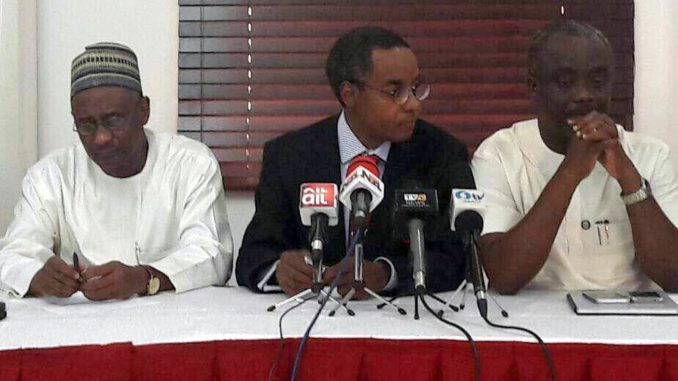
Nigeria risks losing about one million of its citizens to HIV if its government does not take control of the full sponsorship of the treatment, an official has said.
The Director-General of the National Agency for the Control of AIDS, NACA, Sani Aliyu, said Nigeria must take full sponsorship of its HIV/AIDS programme or risk losing one million of its citizens currently living with the disease before 2022.
Mr. Aliyu, who stated this while fielding questions from State House correspondents in Abuja on Sunday, said taking ownership of the programme by Nigeria had become imperative in view of the dwindling resources coming from foreign donors for the programme.
According to him, at the moment, almost one million Nigerians are on HIV treatment with only about 60,000 of them being catered for by the federal government through “the “Taraba and Abia project’’.
He said about 700,000 HIV positive Nigerians were catered for by the U. S. government while remaining 240,000 people were being treated through funds donated by other global organizations.
He, therefore, warned that, “if our major donors decide to stop funding HIV/AIDs programme, almost a million Nigerians will come off the treatments.
“I can tell you as a physician that if those one million people are out of treatment statistically most of them will be dead in the next five years.
“This is a national security issue. HIV treatment is now affordable and we as a country need to start taking ownership of the programme.
“As I mentioned to the National Economic Council, there is no programme on earth that is open-ended. No donor agency will come to you and say ‘I’m going to look after you forever’, It will never happen.
“So, eventually sooner or later those funds will dwindle and they will go away. At the moment, we have an opportunity; we have an opportunity because in the last few weeks we have just crossed the tipping point for the epidemic.
“The tipping point for the epidemic is when we have more people going on treatment than we have new infections, which means that the epidemic is on real downward trend and therefore we need to maintain that momentum.’’
ROLE OF STATES
Mr. Aliyu, whose agency supervises the management and treatment of HIV/AIDS in Nigeria, expressed optimism that the country would be able to achieve the 90-90-90 per cent objective (90 per cent will have HIV; 90 per cent are on treatment and 90 per cent are biologically suppressed) by 2030 “if the momentum is maintained in the next few years.”
He disclosed that state governments had already agreed to commit between 0.5 per cent to one per cent of their monthly allocation towards HIV/AIDS programmes.
He said: “We are not asking for that money to come to the federal government. No, they keep their money but they commit to investing that money in HIV care in their states so that their health system can be strengthened; so that in the future they will be able to deliver their own HIV programme.
“By providing those funds we will be able to increase the number of people on treatment by 50 per cent.
“If we know that we have two million people on treatment by increasing 50 per cent we must have actually saturated the number of people on treatment.
“And with the HIV epidemic once you have more than 80 per cent of your people living with HIV on treatment and biologically suppressed you don’t need to do anything the epidemic will die out on its own because the infectivity is so low that the efficiency of transmission is interrupted.
“So, that was our first prayer to the governors and I made the point very clear that most states are already budgeting the one per cent towards HIV/AIDs but the problem is with the budget release.’’
END

Be the first to comment